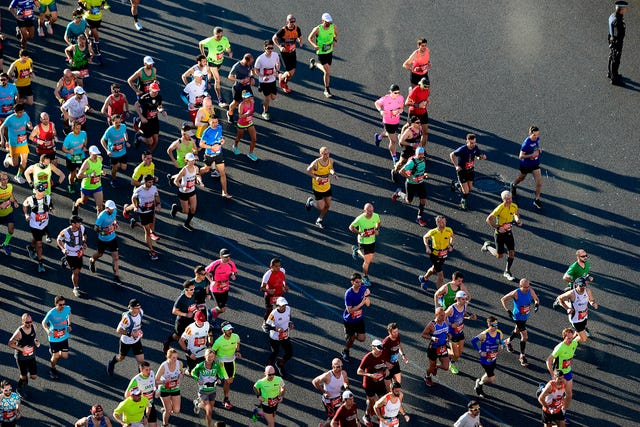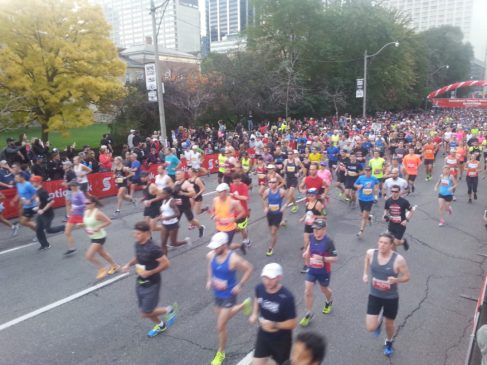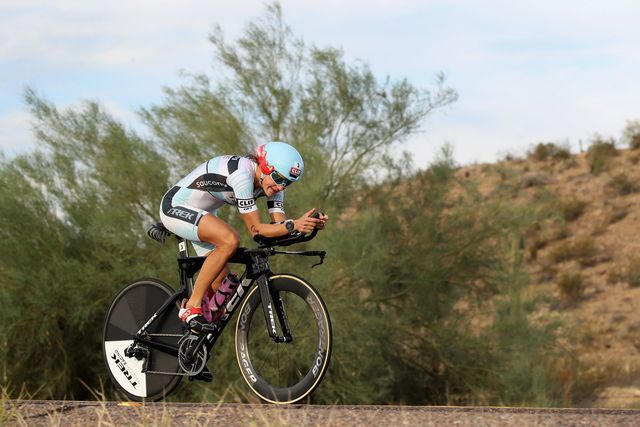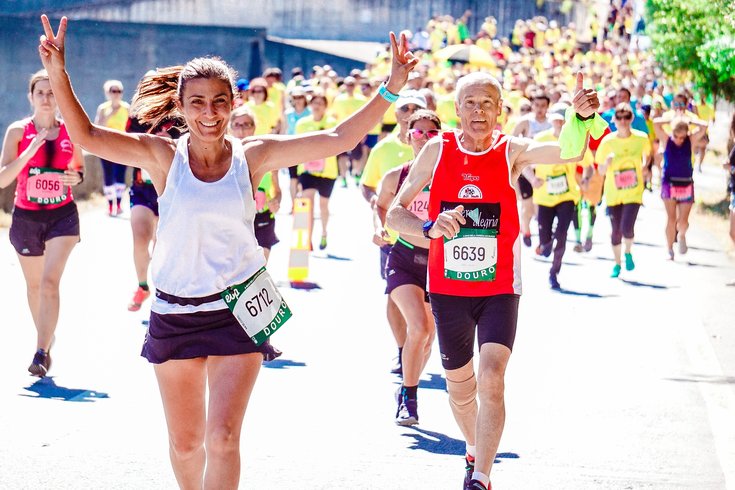Why Can’T I Sleep After a Marathon
You may struggle to sleep after a marathon due to exercise-induced adrenaline and muscle soreness. Obtaining a good night’s sleep after completing a marathon can sometimes be elusive.
This is partly due to the release of adrenaline during the race, which can make it difficult to wind down and relax. Additionally, the intense physical exertion can leave your muscles sore and achy, making it uncomfortable to find a comfortable sleep position.
Trying to sleep immediately after a marathon can also be challenging due to the heightened state of alertness and excitement that usually accompanies such a major accomplishment. Understanding these factors can help you find strategies to improve your post-marathon sleep quality, ensuring you get the rest you need to recover properly.

Credit: www.runnersworld.com
Effects Of Marathon Running On Sleep
Marathons can significantly impact your ability to sleep. Let’s delve into how running a marathon affects your sleep patterns.
Physical Impact
Participating in a marathon places immense physical stress on your body. Running long distances can lead to muscle soreness and fatigue, making it challenging to sleep peacefully post-race.
- Muscle Soreness: After a marathon, sore muscles can make it uncomfortable to find a comfortable sleeping position.
- Physical Exhaustion: The sheer exhaustion from a marathon can disrupt your body’s natural sleep-wake cycle.
Psychological Impact
Marathon running can also have a significant psychological impact on your sleep. The mental exertion of running a marathon can lead to heightened anxiety and restlessness.
- Anxiety: The buildup to a marathon and the race itself can cause anxiety, making it difficult to unwind and fall asleep.
- Restlessness: Post-marathon, your mind may still be racing, preventing you from entering a restful sleep state.
Hormonal Changes And Sleep
After completing a marathon, many runners experience difficulty falling asleep or staying asleep at night. This can be attributed to several factors, including hormonal changes that occur in the body after such a physically demanding event. These hormonal changes can disrupt the body’s natural sleep-wake cycle, making it harder to achieve a restful night’s sleep. Two key hormones that play a role in sleep regulation are cortisol and melatonin.
Impact Of Cortisol
Cortisol, commonly referred to as the stress hormone, is produced by the adrenal glands in response to physical or psychological stress. During a marathon, your body undergoes extensive physical stress, causing cortisol levels to spike. This elevated cortisol can interfere with sleep by keeping you alert and vigilant, making it challenging to wind down and relax after the race.
Moreover, increased cortisol levels can also disrupt the normal release of other hormones involved in sleep regulation. For instance, cortisol inhibits the production of melatonin, the hormone responsible for promoting sleepiness and regulating the body’s internal clock.
Melatonin Regulation
Melatonin is a hormone produced by the pineal gland in the brain, primarily at night. It is responsible for regulating the sleep-wake cycle and helps initiate and maintain sleep. However, after completing a marathon, the body’s melatonin regulation may be compromised.
Cortisol, as mentioned earlier, inhibits melatonin production. Additionally, the intense physical exertion of a marathon can disrupt the body’s natural circadian rhythm, delaying the release of melatonin and making it difficult to fall asleep. These disruptions to melatonin regulation can lead to insomnia and a feeling of restlessness, even when the body is physically exhausted.
To improve the quality of sleep after a marathon, it is crucial to take steps to regulate these hormone levels and support the body’s recovery process. This can include engaging in relaxation techniques, creating a calming bedtime routine, and avoiding stimulating activities before bed.
Recovery Strategies For Better Sleep
The recovery period after a marathon is crucial for allowing your body to heal and restore itself. One aspect often affected during this time is sleep. It’s common to experience difficulty sleeping after a marathon due to the physical exertion and stress placed on the body. However, there are several strategies you can implement to improve your sleep quality and aid in the recovery process. From prioritizing hydration and nutrition to ensuring post-marathon rest, these practices can help optimize your sleep and overall recovery.
Hydration And Nutrition
Proper hydration and nutrition play a significant role in sleep quality and overall recovery. By staying hydrated, you help your body flush out toxins, reduce inflammation, and regulate bodily functions. Additionally, consuming a balanced diet rich in nutrients can provide your body with the necessary fuel to repair tissues and replenish energy stores.
To optimize your sleep and recovery, consider these hydration and nutrition strategies:
- Drink plenty of water throughout the day to maintain hydration levels. Focus on consuming at least eight glasses of water daily.
- Incorporate electrolyte-rich beverages or sports drinks to replenish sodium and potassium levels.
- Ensure a well-balanced diet that includes lean proteins, whole grains, fruits, and vegetables.
- Avoid consuming large meals close to bedtime, as this can interfere with your sleep. Instead, opt for a light snack rich in proteins and complex carbohydrates.
- Limit your intake of caffeine and alcohol, as they can disrupt your sleep patterns.
Post-marathon Rest
Rest is an essential aspect of the recovery process after a marathon. By allowing your body to rest and recover, you aid in the healing of microtears in your muscles and help regulate your body’s hormone levels. Prioritizing post-marathon rest can help improve sleep quality and allow you to feel more refreshed and rejuvenated.
Consider the following strategies to optimize your post-marathon rest:
- After the marathon, take at least one to two days off from any intense physical activity. This allows your body to heal and reduce the risk of further injury.
- Implement a consistent sleep schedule by going to bed and waking up at the same time each day. This helps regulate your body’s internal clock.
- Create a comfortable sleep environment by ensuring your room is dark, quiet, and at a comfortable temperature.
- Engage in relaxation techniques such as deep breathing exercises, meditation, or gentle stretching before bedtime to help your body and mind unwind.
- Avoid electronics, such as smartphones or laptops, at least an hour before bed, as the blue light emitted can disrupt your sleep-wake cycle.

Credit: www.insidetracker.com
Mental Fatigue And Sleep
Feeling exhausted mentally and physically after a marathon can disrupt your sleep. The intense physical exertion and mental strain may cause elevated stress levels and difficulty in relaxing, making it challenging to fall asleep or stay asleep. Additionally, the body’s heightened cortisol levels and inflammation may contribute to sleep disturbances.
Stress And Anxiety
Cognitive Exhaustion
In the aftermath of a marathon, mental fatigue often disrupts sleep patterns. Stress and anxiety levels can be elevated post-marathon, hindering relaxation. Cognitive exhaustion also plays a role in disrupting sleep after intense physical exertion.Sleep Disturbances After A Marathon
After completing a marathon, many runners may find themselves struggling to get a good night’s sleep. The physical and psychological demands of a marathon can lead to sleep disturbances that can affect the body’s ability to properly rest and recover. In this article, we will explore the common causes of sleep disturbances after a marathon and provide some tips and strategies to help improve post-race sleep quality.
Physical Discomfort
One of the main reasons why marathon runners may experience difficulty sleeping after a race is due to physical discomfort. The intense physical exertion of running 26.2 miles can lead to muscle soreness, stiffness, and overall fatigue. These physical sensations can make it challenging for runners to find a comfortable sleeping position and may lead to frequent tossing and turning throughout the night.
Sleeping Environment
The sleeping environment can also play a significant role in post-marathon sleep disturbances. After completing a race, many runners may find themselves in an unfamiliar location, such as a hotel room or temporary accommodation. The change in environment, coupled with potential noise disturbances, different bedding, and varying room temperatures, can disrupt the body’s natural sleep patterns and make it challenging to achieve deep, restful sleep.

Credit: www.olyrun.com
Frequently Asked Questions On Why Can’t I Sleep After A Marathon
Why Can’t I Sleep The Night After A Marathon?
After a marathon, your body is in a heightened state of stress and adrenaline, making it hard to sleep.
Why Am I Struggling To Sleep After Running?
Running can lead to difficulty in falling asleep due to increased heart rate and adrenaline levels. The body needs time to calm down and return to a resting state. Establishing a regular sleep routine, avoiding vigorous exercise close to bedtime, and practicing relaxation techniques can help improve sleep after running.
How Should You Sleep After A Marathon?
After a marathon, it’s important to prioritize quality sleep. Here’s what you can do: 1) Get a good night’s rest, aiming for at least 7-9 hours. 2) Use a comfortable mattress and pillows to support your body. 3) Take a warm bath or shower before bed to relax your muscles.
4) Keep your sleeping environment quiet, dark, and cool. 5) Avoid caffeine or heavy meals close to bedtime for better sleep quality.
Conclusion
Struggling to sleep after a marathon? Your body needs time to recover. Hydrate, relax, and be patient with yourself. Listen to your body’s signals and prioritize rest. Remember, it’s normal to experience sleep disturbances post-race. Take care of yourself and trust the recovery process.





